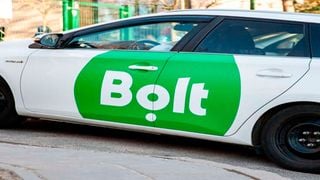
Bolt has dismissed at least 5,000 drivers in the past six months due to non-compliance and safety-related matters. FILE PHOTO | POOL
|Business
Premium
Last-minute new Bolt licence blocks Little Cab buyout bid
Taxi-hailing firm Little Cab has dropped its bid to buy out rival Bolt after the Estonian firm was granted a last-minute licence renewal, lifting the lid on the fierce battle for control of the industry and the behind-the-scenes lobbying triggered by a licensing stalemate with the transport regulator.
Little chief executive and Craft Silicon founder Kamal Budhabhatti on Tuesday confirmed to the Business Daily that his firm had formally expressed an interest in buying the Estonia firm after the National Transport and Safety Authority (NTSA) declined to renew its licence over alleged breaches, including illegal commission charges and booking fee.
However, Little Cab has now shelved the purchase plan because Bolt had received a new network company operator after dropping the booking fee.
"We had a proposal since their licence was getting delayed. But since now they got licence this discussion is not going to move (forward)," Mr Budhabhatti said in a response to Business Daily inquiry.
He, however, declined to disclose how much Little Cab was willing to offer for the Bolt buyout, which has been in the Kenyan market since 2016.
He also declined to disclose how Little Cab planned to onboard all Bolt drivers in the event the buyout materialised.
Bolt confirmed having received overtures from Little Cab but said it rejected them since it was not for sale.
“With our renewed licence, we continue to reaffirm our commitment to the Kenyan market. We are here to stay in this pivotal market, and will continue to dedicate our efforts to providing viable earning opportunities to drivers on our platform, coupled with reliable and cost-efficient services to our customers," Bolt country manager Linda Ndung’u said.
Sources familiar with the intrigues say Little Cab wrote the offer letter this week in anticipation that Bolt would be denied a licence due to the rising driver complaints and was hoping that the Estonian firm would be desperate for an exit.
Bolt is the largest ride-hailing service provider in terms of reach, with its services available in 16 towns, including Kakamega, Nakuru, Naivasha, Eldoret, Kitale, Nyeri, Meru, Embu, Nanyuki, Karatina, Kilifi and Malindi.
The firm operates ride-hailing and delivery services in six African countries— Kenya, Ghana, Nigeria, Uganda, Tanzania and Tunisia— with over 47 million customers and 900,000 drivers on the platform.
Its biggest rival Uber initially operated in Nairobi, Thika, Mombasa and Nakuru, before expanding to five other towns — Kisumu, Eldoret, Naivasha, Elementaita and Gilgil — in June last year.
Easing pressure
Players in the ride-hailing space include Farasi, Hava and Wasili.
Revelations that Little Cab had plans to buy Bolt come after the latter secured the licence on Monday to carry on with its services after meeting all the NTSA regulatory requirements.
The move now eases pressure on Bolt which said early this year that it would invest Sh13.4 billion in its Kenyan subsidiary to expand its services beyond the 16 towns it currently operates in.
"We are happy to receive the renewal of our operating licence from the NTSA, after collaborative dialogue between key stakeholders within the industry," said Ms Ndungu in a statement on Tuesday.
NTSA earlier declined to renew the licence over alleged breaches, accusing Bolt of breaching the provisions of Transportation Network Companies (TNC), Owners, Drivers and Passengers Regulations, 2022, with the “most pressing concerns” relating to commission charges and an “illegal” booking fee.
The regulations bar taxi-hailing apps from deducting any other charge from customers apart from the commission.
But Ms Ndungu said Bolt was charging booking fees on customers as opposed to drivers.
As a condition to get a new licence, Bolt was ordered by NTSA to provide a breakdown of the commission rates currently in effect, highlighting specific instances where rates have exceeded the allowed maximum of 18 percent.
The firm was also required to explain the rationale behind its commission structure and also cease what NTSA described as an illegal booking fee and ensure strict compliance with the regulations.
Bolt said in a statement last Sunday it had suspended the booking fee pending clarification with NTSA around the interpretation of the regulation on this particular matter.
"It is important to highlight that our commission structure strictly adheres to the stipulated regulatory requirement of capping at 18 percent. We want to reaffirm our unwavering commitment to operating within the bounds of the law, ensuring that our operations fully align with the legal framework. We remain committed to collaborating closely with the regulator to ensure a successful outcome," Bolt said.




